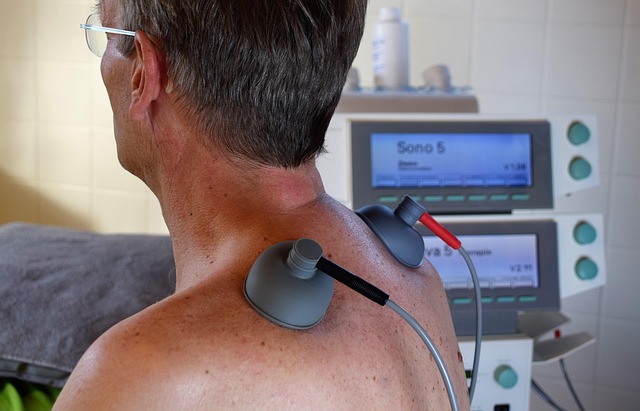Medical clinics require robust core insurance for healthcare to protect against financial losses and risks, including malpractice claims, property damage, and cyberattacks. This type of insurance offers comprehensive coverage for general medical malpractice, professional liability, and related risks, allowing clinics to focus on patient care without constant worry. By selecting an insurance provider with a strong network, efficient claims processing, and tailored coverage options (such as medical, surgical, and preventive care benefits), clinics can safeguard their assets, ensure operational continuity, and maintain patient trust in a competitive healthcare sector.
In today’s complex healthcare landscape, ensuring robust protection is non-negotiable for medical clinics. This comprehensive guide delves into the essence of core insurance for healthcare, serving as a foundational pillar for clinic operations. We explore why everyday protection is vital, unveiling common risks and how tailored insurance policies mitigate them effectively. From understanding essential coverage areas to selecting the right provider, this article equips medical practices with the knowledge needed to implement and maintain optimal core insurance strategies.
- Understanding Core Insurance for Healthcare: A Foundation for Medical Clinics
- Why Is Everyday Protection Crucial for Medical Practices?
- Essential Coverage Areas for Comprehensive Clinic Insurance
- Navigating Risks: Common Threats to Medical Clinics and How Insurance Mitigates Them
- Choosing the Right Insurance Provider: Key Factors for Medical Clinics
- Implementing and Maintaining Core Insurance Policies for Optimal Healthcare Protection
Understanding Core Insurance for Healthcare: A Foundation for Medical Clinics

Medical clinics, like any healthcare facility, require robust protection to safeguard against potential risks and financial losses. Understanding core insurance for healthcare is a fundamental step in achieving this. This type of insurance serves as a cornerstone, providing essential coverage for general medical malpractice, professional liability, and other related risks. It offers a comprehensive shield against claims arising from patient care, ensuring that clinics can focus on delivering quality services without constant worry.
Core insurance for healthcare typically includes liability protection, which covers damages or injuries sustained by patients during their visit. This includes medical malpractice, where the clinic or its staff is held accountable for negligence leading to adverse outcomes. Additionally, it may extend to property damage and business interruption, safeguarding the clinic’s physical assets and financial stability. By understanding and securing this core coverage, medical clinics can build a solid foundation of protection tailored to their specific needs.
Why Is Everyday Protection Crucial for Medical Practices?

In the dynamic landscape of healthcare, where every day brings new challenges and risks, everyday protection is not just a consideration but a necessity. Medical clinics, from small practices to bustling hospitals, operate in an environment that demands robust safeguards. This is not merely about compliance with regulations; it’s about ensuring the well-being of patients, staff, and the clinic’s operational continuity. A comprehensive core insurance for healthcare acts as a shield against unforeseen events, such as malpractice suits, property damage, or even loss of critical medical equipment.
Without adequate protection, medical practices face significant risks. From potential lawsuits arising from patient injuries to natural disasters causing facility damage, everyday protection helps mitigate these risks. It enables clinics to focus on delivering quality care without the constant burden of worry. Moreover, core insurance for healthcare ensures that financial stability is maintained, allowing practices to invest in new technologies and staff training, ultimately enhancing patient outcomes and fostering a positive clinical environment.
Essential Coverage Areas for Comprehensive Clinic Insurance

In the dynamic landscape of healthcare, ensuring comprehensive insurance coverage is paramount for medical clinics to navigate risks effectively. The core insurance for healthcare encompasses several essential coverage areas that safeguard both the clinic’s operations and patients’ well-being. These include liability coverage, which protects against claims arising from medical malpractice or negligence, thereby safeguarding clinical professionals from financial exposure.
Additionally, property insurance is crucial to protect the physical assets of the clinic, including buildings, equipment, and inventory. This coverage helps in recovering from unforeseen events like fires, natural disasters, or vandalism, ensuring business continuity. Further, professional liability insurance specifically addresses risks related to healthcare services, offering protection against claims of negligence or misdiagnosis. By meticulously considering these core insurance components, medical clinics can build a robust risk management strategy, fostering trust among patients and ensuring long-term sustainability.
Navigating Risks: Common Threats to Medical Clinics and How Insurance Mitigates Them

Navigating Risks: Common Threats to Medical Clinics and How Insurance Mitigates Them
Medical clinics face a unique set of risks that require comprehensive protection to ensure smooth operations and patient safety. Common threats include liability claims due to medical errors, accidents involving patients or staff, and potential damage to property from natural disasters or malicious acts. These risks can significantly impact the financial stability and reputation of a clinic.
Core insurance for healthcare plays a pivotal role in mitigating these challenges. It provides financial protection against liability claims, covering legal fees and settlement costs. Additionally, it may include coverage for property damage, business interruption, and even cyber threats, which are increasingly prevalent in the digital age. By having the right core insurance policy, medical clinics can safeguard their assets, maintain continuity of care, and focus on delivering quality healthcare services to their patients.
Choosing the Right Insurance Provider: Key Factors for Medical Clinics

When selecting an insurance provider, medical clinics must prioritize their specific needs in healthcare coverage. Key factors to consider include the breadth and depth of services covered, network strength, and claims processing efficiency. It’s crucial to choose a provider that offers comprehensive core insurance for healthcare, encompassing medical, surgical, and prescription benefits, along with preventive care measures.
Additionally, the financial stability and reputation of the insurer are vital. Medical clinics should opt for well-established companies with positive track records in paying claims promptly and fairly. A robust network of healthcare providers within a reasonable geographic radius ensures patients have convenient access to quality care, enhancing patient satisfaction and retention.
Implementing and Maintaining Core Insurance Policies for Optimal Healthcare Protection

